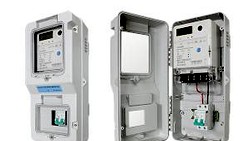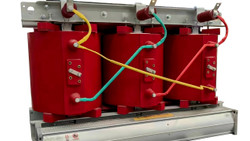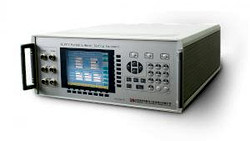In today's world, the power grid is becoming increasingly unstable and unreliable. To combat this problem, many utility companies are turning to a new technology: an Advanced Metering Infrastructure (AMI) system. An AMI system utilizes smart meters that measure and record electricity usage, allowing for a more efficient and stable power grid. This blog post will discuss the benefits of having an AMI system, and why it is the best way to go for improving the power grid.
Understanding how the power grid works
The power grid is a system solution that supplies electricity to homes and businesses. It is made up of generators, transmission lines, distribution networks, and transformers. The grid is managed by utility companies, who have the responsibility of ensuring that the electricity generated is distributed to all customers in an efficient and reliable manner.
In order to manage the power grid efficiently, utility companies use complex algorithms to predict the demand for electricity in each region they serve. This helps them balance supply and demand, thereby preventing outages and blackouts. It also helps them save money by avoiding costly overproduction or underproduction of electricity.
However, this system can be improved upon with the use of smart meters. Smart meters are devices that measure and record the amount of energy consumed in a given period of time. They are installed in homes and businesses, and send the data they collect back to the utility companies. This data can then be used to better understand energy consumption patterns and optimize the power grid accordingly.
How a smart meter AMI system can help?
Smart meter Advanced Metering Infrastructure (AMI) systems are designed to help improve the overall efficiency and reliability of the power grid. By providing more accurate and detailed data about electricity usage, AMI systems can help identify areas where energy waste is occurring and allow for more efficient distribution and use of power. This system solution can also help utilities identify customers with unusually high or low electricity use in order to target them for conservation campaigns, respective line loss and tamper detection.

In addition, AMI systems are able to monitor power outages in real time, allowing utilities to respond faster and more efficiently to address any issues that arise. The implementation of a smart meter AMI system would provide a great benefit to the power grid by allowing for better monitoring and improved efficiency.
What other benefits come with an AMI system?
The benefits of a smart meter AMI system extend far beyond just providing a more stable power grid. With the use of smart meters, electricity providers are able to create an automated system solution that can detect and address any unexpected events before they become a major problem. This system solution can be tailored to a customer's individual needs, allowing them to have greater control over their electricity usage. Additionally, this system allows customers to receive real-time data about their energy consumption, allowing them to make more informed decisions about how to use their electricity. Furthermore, a smart meter AMI system can provide utilities with accurate billing information, helping reduce the potential for human errors or discrepancies in billing. All in all, a smart meter AMI system is not only beneficial for providing a more stable power grid, but also for providing customers with enhanced control and accurate data.
Are there any drawbacks to a smart meter AMI system?
When it comes to the power grid, installing a smart meter AMI system can provide various benefits, but there are also some drawbacks that should be taken into consideration. First of all, the cost of installing such a system solution can be quite expensive, as hardware and software have to be purchased and configured. Additionally, the installation process can take quite a bit of time and money, as the necessary components need to be configured and installed properly in order for the system to work correctly. Another potential downside is that the system itself may require regular maintenance and upgrades to ensure that it is operating properly. Finally, data security concerns may arise when using a smart meter AMI system as data collected by the system needs to be kept secure and private.
Takeaway
Overall, while a smart meter AMI system can be an effective solution for improving the stability of the power grid, there are some drawbacks that should be taken into consideration when making a decision. It is important to weigh all of these pros and cons carefully before making an informed decision.
We have more than two decades experience with smart meters and related system integrations and configurations. Talk to us for more information.
Editor's note: This article was originally published in February 2023 and has been updated for comprehensiveness.





All comments are moderated before being published. Inappropriate or off-topic comments may not be approved.